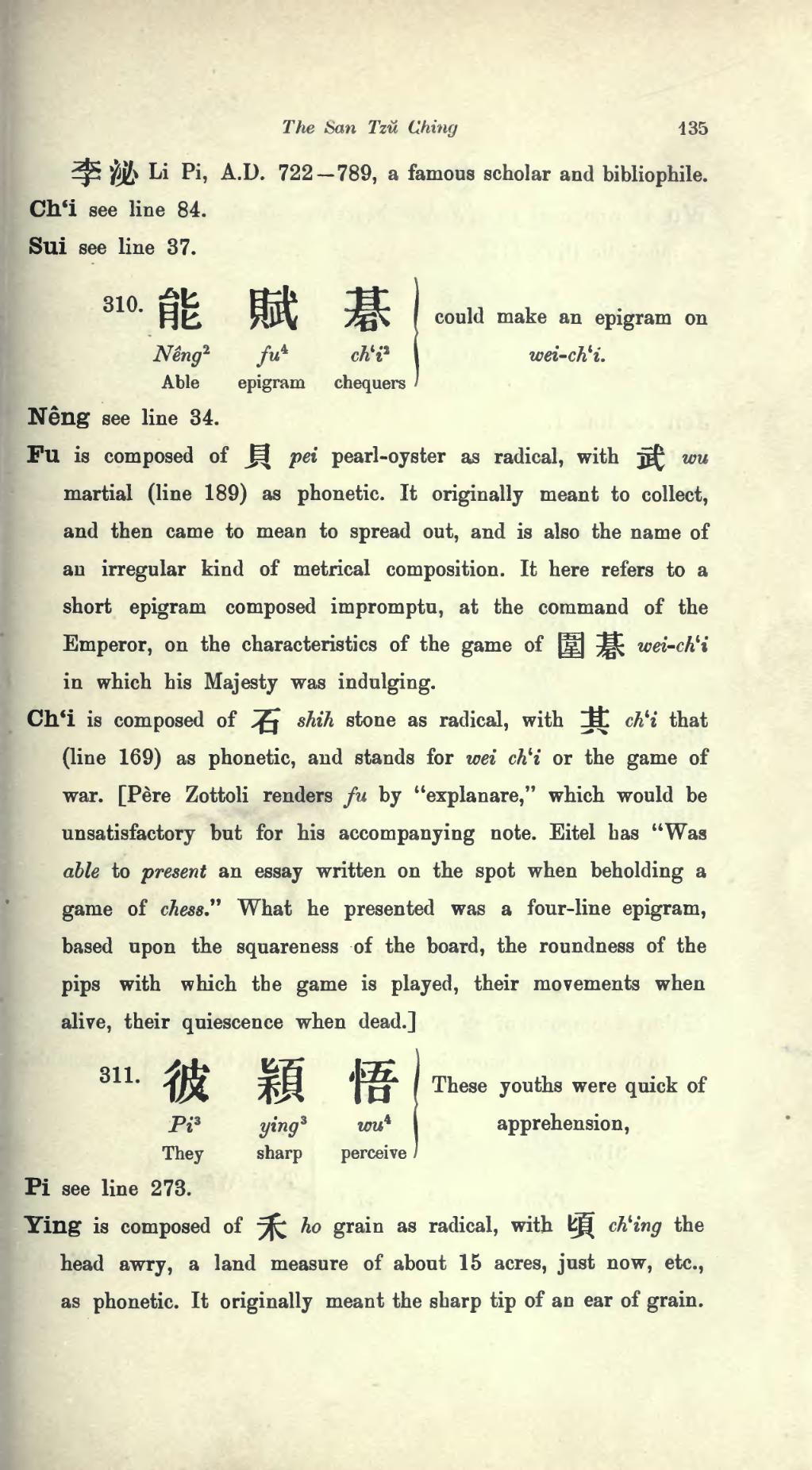李泌 Li Pi, A.D. 722—789, a famous scholar and bibliophile.
Ch'i see line 84.
Sui see line 37.
| 310. | 能 | 賦 | 碁 | could make an epigram on wei-ch'i. | |
| Nêng2 | fu4 | ch'i2 | |||
| Able | epigram | chequers |
Nêng see line 34.
Fu is composed of 貝 pei pearl-oyster as radical, with 武 wu martial (line 189) as phonetic. It originally meant to collect, and then came to mean to spread out, and is also the name of an irregular kind of metrical composition. It here refers to a short epigram composed impromptu, at the command of the Emperor, on the characteristics of the game of 圍碁 wei-ch'i in which his Majesty was indulging.
Ch'i is composed of 石 shih stone as radical, with 其 ch'i that (line 169) as phonetic, and stands for wei ch'i or the game of war. [Père Zottoli renders fu by "explanare," which would be unsatisfactory but for his accompanying note. Eitel has "Was able to present an essay written on the spot when beholding a game of chess." What he presented was a four-line epigram, based upon the squareness of the board, the roundness of the pips with which the game is played, their movements when alive, their quiescence when dead.]
| 311. | 彼 | 穎 | 悟 | These youths were quick of apprehension, | |
| Pi3 | ying3 | wu4 | |||
| They | sharp | perceive |
Pi see line 273.
Ying is composed of 禾 ho grain as radical, with 頃 ch'ing the head awry, a land measure of about 15 acres, just now, etc., as phonetic. It originally meant the sharp tip of an ear of grain.

